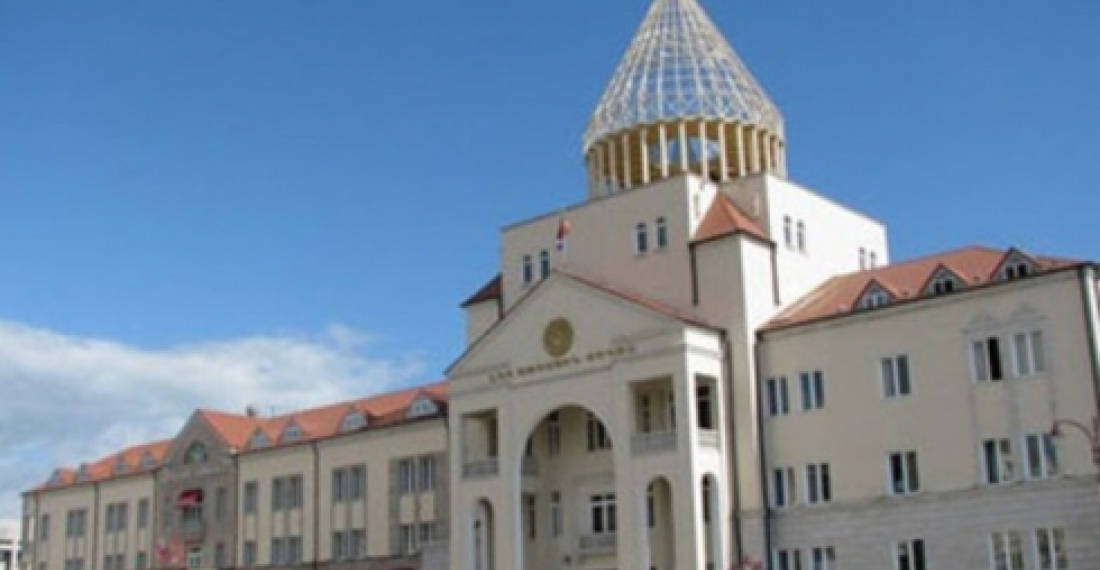The Chief of Staff of the Armenian Army, Colonel General Yuri Khachaturov is in Stepanakert for meeting with the leadership of the self declared Nagorno-Karabakh Republic. on Monday morning he was received by the president, Bako Sahakian. NKR Defense Minister Movses Hakobyan, first deputy head of the General Staff of the Armenian Armed Forces Enrico Apryamov also participated in the meeting.
Commonspace.eu political editor said in a comment that there are often visits by senior officials of the Armenian Army to Nagorno-Karabakh. However these visits seem to have increased in the last months, and they are also being given more prominence by the media. This is partly because the leadership of the self declared Nagorno-Karabakh republic needs to show to its population that it is taking the deteriorating security situation on the front line seriously. It is also a sign that Armenian forces are increased in more intensive contingency planning. The visit of Khachaturov this week is likely also related to the imminent opening of Stepankert Airport, a move that has been rejected by Azerbaijan.
source; commonspace.eu







